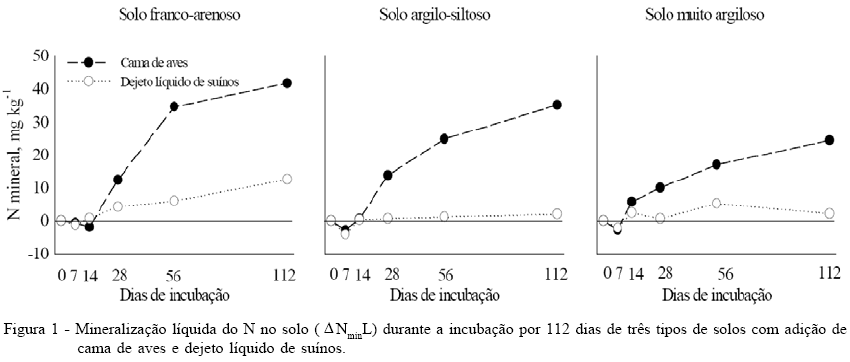The N release in the soil with organic fertilization is affected by various factors, such as the amount and the caractheristics of the added manure, climatic conditions and soil type. This study aimed to evaluate the effect of soil texture and the N release from two sources of organic fertilizer. Sandy loam soil (238mg clay kg-1), silt clay (470mg kg-1) and very-clay (605mg kg-1) were incubated, to which the poultry litter (47% N-NH4+) and the pig liquid slurry (14% N-NH4+) were added or not. The contents of N-NH4+ and N-NO3- was determined at 0, 7, 14, 28, 56 and 112 days after incubation and calculated the net mineralization and the percentage of available N and net mineral nitrogen in relation to the total and added organic N, respectively. The higher clay caused more gradually nitrification, regardless of the type of organic fertilizer added, which may helps to reduce the polluting potential of N. The net N mineralization was also higher in sandy loam soil. This confirms the recommendation to spread the supply of nitrogen to crops, particularly in sandy soils and slurry rich in N-ammonia. The results indicated that the official indices of efficiency of N release (IELN), of 80% for the pig liquid slurry and 50% for the poultry litter, may be overestimated. Therefore, it seems important to consider the N mineral of the soil in the calculation of the efficiency of the release to reduce the depletion of soil organic matter in a medium or long term. Finally, the results point to the need for further studies so that the soil texture classes are considered as a variable to the recommended nitrogen through organic fertilizers.
fertilizer efficiency; available N; pig liquid slurry and poultry litter







